P-Valley is something else. Truly.
Starz has something amazing on its hands with P-Valley. The series, now in its second season, revolves around the Chucalissa, Mississippi-based The Pynk strip club and those who frequent it. With scenes that I would venture to say lean in the direction of a Zane novel or the writing of Sister Souljah, creator Katori Hall and her team spin up a world filled with society's underdogs who have climbed their way to the top of life's figurative pole through their own tenacity. They are characters that you fall in love with -- some that you love to hate -- and root for. And, they are characters that often present as disruptions to popular narratives.
Uncle Clifford is certainly a leader, not only of the series but in the work of disruption. In the hands of Hall and others like co-executive producer Patrik-Ian Polk, the gender irreverant, bearded and shellacked, full-figured nonbinary wonder makes her own rules. Those are given out as maxims -- complete with their own personalized numbers -- in the confines of The Pynk, but outside, they evidence themselves in how Clifford shows up in the world.
The show's latest episode, titled "Jackson," digs into this. Clifford (Nico Annan) is taking care of her grandmother who has come down with the virus at the center of the ongoing pandemic and Lil Murda (J. Alphonse Nicholson) is staying with them after watching the trauma of Big Teak die by suicide right in front of him. Being in the same house forces Murda and Clifford to deal with their unresolved feelings -- the pair had been seeing one another until Murda, who is a rapper, decided that his career was more important than possibly being ostracized for being gay.
Trending stories
Almost halfway through the episode, Murda finds Clifford in her room trying to find him something to wear. After passing over pieces like a shirt that "belong to the trade of Christmas past," Murda finds an old Gucci bag.
"That's my first pocketbook," Clifford says, "I had that since I was three." Clifford went on, explaining that her mother had defended her from anyone's objections.
"So you always been like ... like this?" Murda asks. Clearly, the question was aimed at her not conforming to typical gender presentation expectations.
"Nigga what you mean?" Clifford responds.
"Like this," Murda continues. "I mean I don't mean no offense but, what are you?"
"I'm Uncle Clifford," Clifford says. It is a simple answer, but powerful enough. It's an idea we have certainly heard before: I am what I am, I am my own creation. I exist, therefore I am and that needs no further explination. In fact, for me it felt parallel to Kevin asking "Who is you, Chiron?" in Moonlight. But Clifford continues: "What are you?"
"What the world won't let me be," Murda explains.
\u201cThe conversation of \u201cpassing\u201d brings into sharp relief Lil\u2019 Murda\u2019s past struggle of having his gay not be clockable due to his hypermasculine gender performance. It is a vulnerable moment as both try to define their sexual & gender identities to each other #PValley\u201d— Katori Hall (@Katori Hall) 1658730621
\u201cUncle Clifford being non-binary in the world of Chucalissa akin to being a unicorn. The way she has always traversed through this southern landscape is revolutionary and lonely all at once. #PValley\u201d— Katori Hall (@Katori Hall) 1658730621
It is an intriguing admission, and an honest one. For many, what we are and how we present is a negotiation with the world. It is about finding out not only who you are inside, but when that proves incongruent with what society will allow, what is worth preserving. How we show up often becomes a game of choosing our battles out of safety or acceptance. And while some are prepared to tussle with the expectations of gender performance and what it means to be assigned male at birth, many find that weight to be crushing, opting for the paths of least resistance.
"You ask me what I am without even realizing all that come along with that answer," Clifford explains later. "Don't get me wrong: I love me some me but people don't understand how lonely it can be to shine so bright."
These are the moments in which P-Valley sings. In this world of fantastical pink and purple-colored drama, the characters are still people simply navigating what it means to be human in what we've all come to know as a bitterly cold and complex world.
Toward the end of the episode, the show continues these complexities. Gay and queer characters are often treated to very specific types of sex scenes. Over the last few years we've seen that slowly widen and P-Valley continues adding to that work. In a series set in a strip club, sex scenes seem a given and Uncle Clifford has been no exception to them.
\u201cThe reunion we been waitin\u2019 for. #PValley\u201d— P-Valley (@P-Valley) 1658717215
In season 2 episode seven, as the show has done before, P-Valley puts a wrinkle in the expectations. In almost any context a full figured, femme character sporting three inch nails would be presumed a bottom. But Uncle Clifford? A non-conformist to the core, fills Murda up just as requested. Nails still attached, wigs and lashes likely not far off. And that's real.
Though sex is imagined popularly on a binary, this is queer sex as it happens. There is no rule book, no one way have sex. In real life femme tops do exist. Those who are nonbinary do not abandon the act of sex by choosing to live out their gender. And it's time that all of that be deserving of as much camera time as anything else.
RELATED | 'P-Valley' Season 2's Gay Sex Scene Is Worth All the Conversation









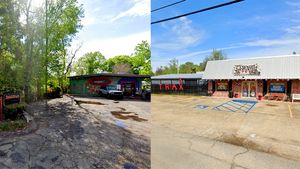



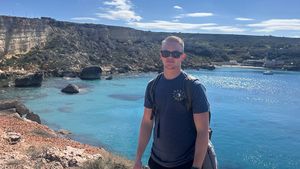







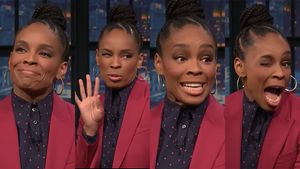





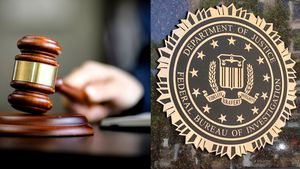

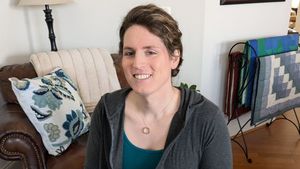







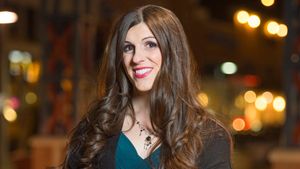



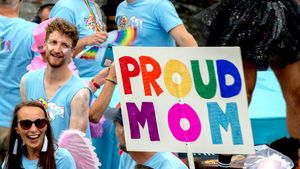


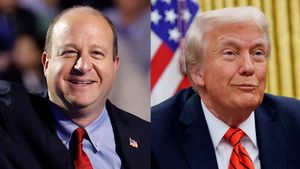












































P Valley's Uncle Clifford (and Her Sex Scenes) Are a Needed Disruption
"Fill me up."
Mikelle Street
Mikelle is the former editorial director of digital for PrideMedia, guiding digital editorial and social across Out, The Advocate, Pride.com, Out Traveler, and Plus. After starting as a freelancer for Out in 2013, he joined the staff as Senior Editor working across print and digital in 2018. In early 2021 he became Out's digital director, marking a pivot to content that centered queer and trans stories and figures, exclusively. In September 2021, he was promoted to editorial director of PrideMedia. He has written cover stories on Ricky Martin, Miss Fame, Nyle DiMarco, Jeremy O. Harris, Law Roach, and Symone.
Mikelle is the former editorial director of digital for PrideMedia, guiding digital editorial and social across Out, The Advocate, Pride.com, Out Traveler, and Plus. After starting as a freelancer for Out in 2013, he joined the staff as Senior Editor working across print and digital in 2018. In early 2021 he became Out's digital director, marking a pivot to content that centered queer and trans stories and figures, exclusively. In September 2021, he was promoted to editorial director of PrideMedia. He has written cover stories on Ricky Martin, Miss Fame, Nyle DiMarco, Jeremy O. Harris, Law Roach, and Symone.